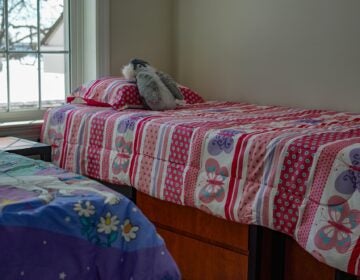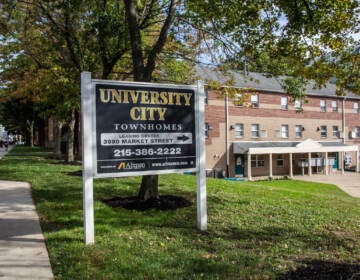In Philadelphia’s rapidly changing Brewerytown, a neighborhood’s gain is one resident’s loss
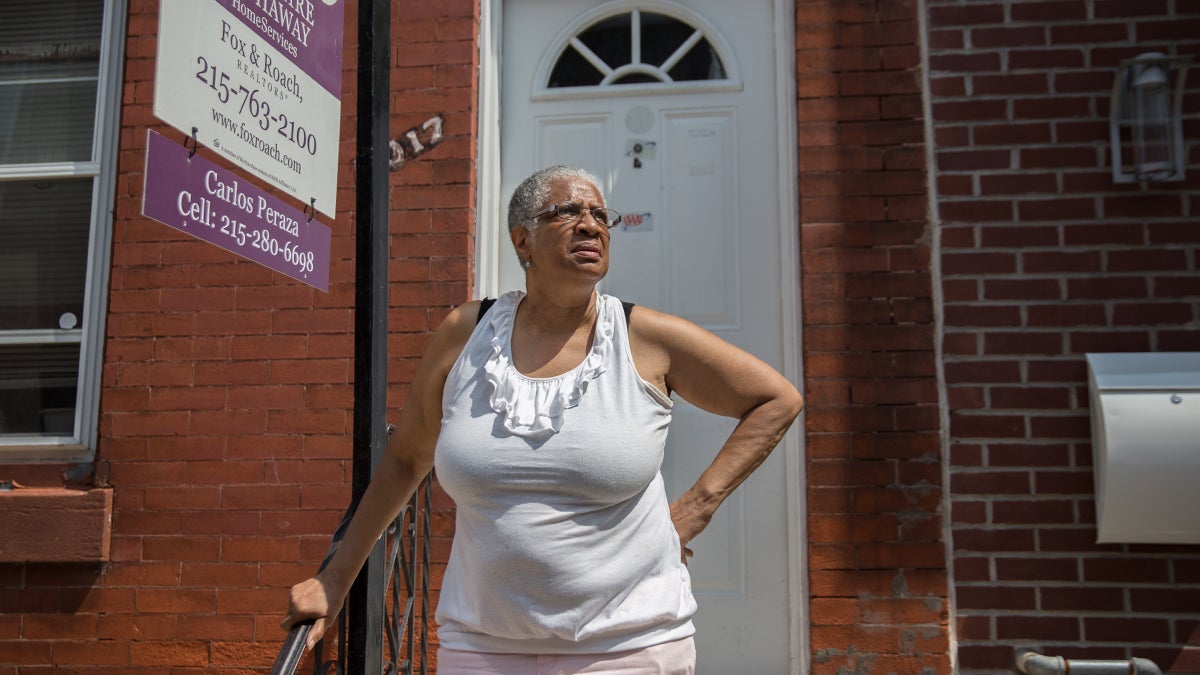
Mary Griffin has lived in the same home in Philadelphia's Brewerytown for almost 40 years. This summer she had to pack up and move because her landlord sold the house she rented. (Lindsay Lazarski/WHYY)
Brewerytown has changed. Its close proximity to the park, public transportation, and Center City has made it one of Philadelphia’s hot new neighborhoods.
For 52 years, Mary Griffin called Brewerytown home. She raised her children in this section of North Philly, and life was good. The family would have picnics at Lemon Hill in nearby Fairmount Park, and the kids would wile away summer days on “playstreets” — blocked off streets throughout the neighborhood — designated especially for them.
When Griffin, 71, got the taste for an adult beverage, she’d walk to the nearby bar, where the bartenders served her a glass of beer on the rocks, which she sipped through a straw.
But today, Brewerytown has changed. Its close proximity to the park, public transportation, and Center City has made it one of Philadelphia’s hot new neighborhoods. Griffin has found herself caught in the crossfire of developers eager to grab properties, and long-time home owners who have seen their taxes skyrocket because of it.
And that leaves renters like Griffin displaced.
“My landlord, she didn’t want to sell her building, but she said the taxes were too high and she couldn’t afford it, so she said she had to sell it,” Griffin said.
A lot has changed in the 40 years since Brewerytown — so named because the neighborhood was home to most of Philly’s breweries in the 19th century — suffered from neglect and divestment in the 70’s and 80’s. Though African American home owners sustained the community, the neighborhood struggled.
“When I moved on my block, it was about 50 of us with the kids, and the families, and everything,” Griffin said. “And now it’s only three, maybe four African Americans living on my block.”
According to Reinvestment Fund, construction and improvement permits in Brewerytown have increased 116 percent from 2013 to 2015. It seems like a new building pops up every day. It leaves African American residents like Griffin, the ones who have hung in through the bad times, feeling like they don’t belong.
“I can understand why now people think the pace has gotten crazy because you have tons of developers up here on just about every street doing stuff,” said David Waxman, founder of MM Partners, whose company has developed and rennovated hundreds of properties in Brewerytown over the past 16 years.
In 2001 MM Partners, bought and renovated eight shells on Girard Avenue and helped stabilize the block.
He hopes retail stores like Dollar Tree, which everybody uses, will help stop the racial polarization on Girard Avenue. For as long as anyone can remember, African Americans have lived north of the avenue and whites have lived south.
“That’s just insane. Why should there be a dividing line?” Waxman said. “We felt that if you could bring retail that both old and new residents could use, you could erase this divide.”
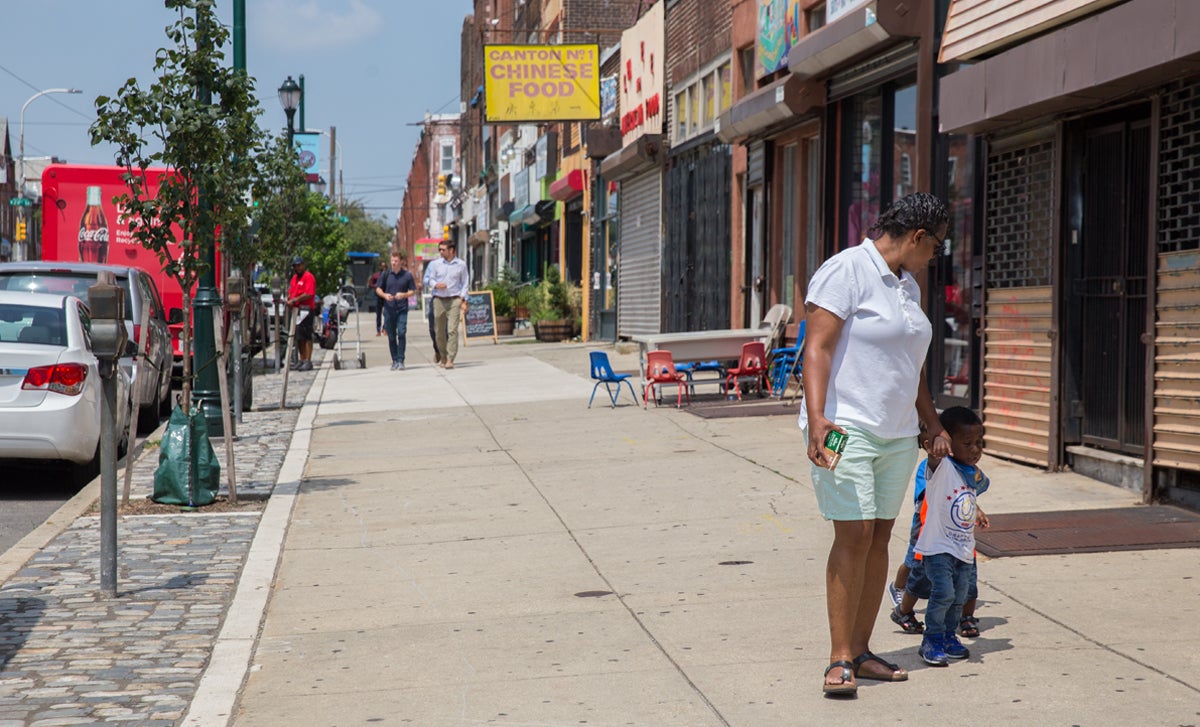
There have been challenges.
Recently, a clash between neighborhood kids and members of Steelworks, a new gym at 25th and Girard, led to the hospitalization of 14-year-old Naji Tribble and the resignation of police officer Kevin Furman. And it’s made longtime residents even more leery.
“It’s like we’re outsiders in our own neighborhood now, ” said Alfred Tribble, Naji’s father, who’s lived in Brewerytown all of his life. “Instead of embracing the community and the children in the community, you call them racial names and throw them out of the gym. You shouldn’t do that.”
Purely from a business standpoint, getting to know the longstanding residents makes good sense, Tribble said.
“You should embrace the neighborhood you’re in,” he said. “because it’s the neighborhood you’re in that’s going to support you.”
But other residents, like Michael Wambolt, owner of Crime and Punishment Brewing Company on Girard Avenue, believe the incident at the gym was not indicative of the neighborhood.
Wambolt has lived in Brewerytown since 2008. The first year, he lived south of Girard Avenue, where he says his white neighbors seldom engaged with the community as a whole. It was only when he moved north of Girard, he says, that he got to know his black neighbors, and their children and grandchildren.
“My neighbors know me and I know them,” he said. They say, ‘Mike I don’t really care for your beer that much,’ and that doesn’t bother me. What matters is that I’ve spoken to my neighbors and they respect me as a business owner.”
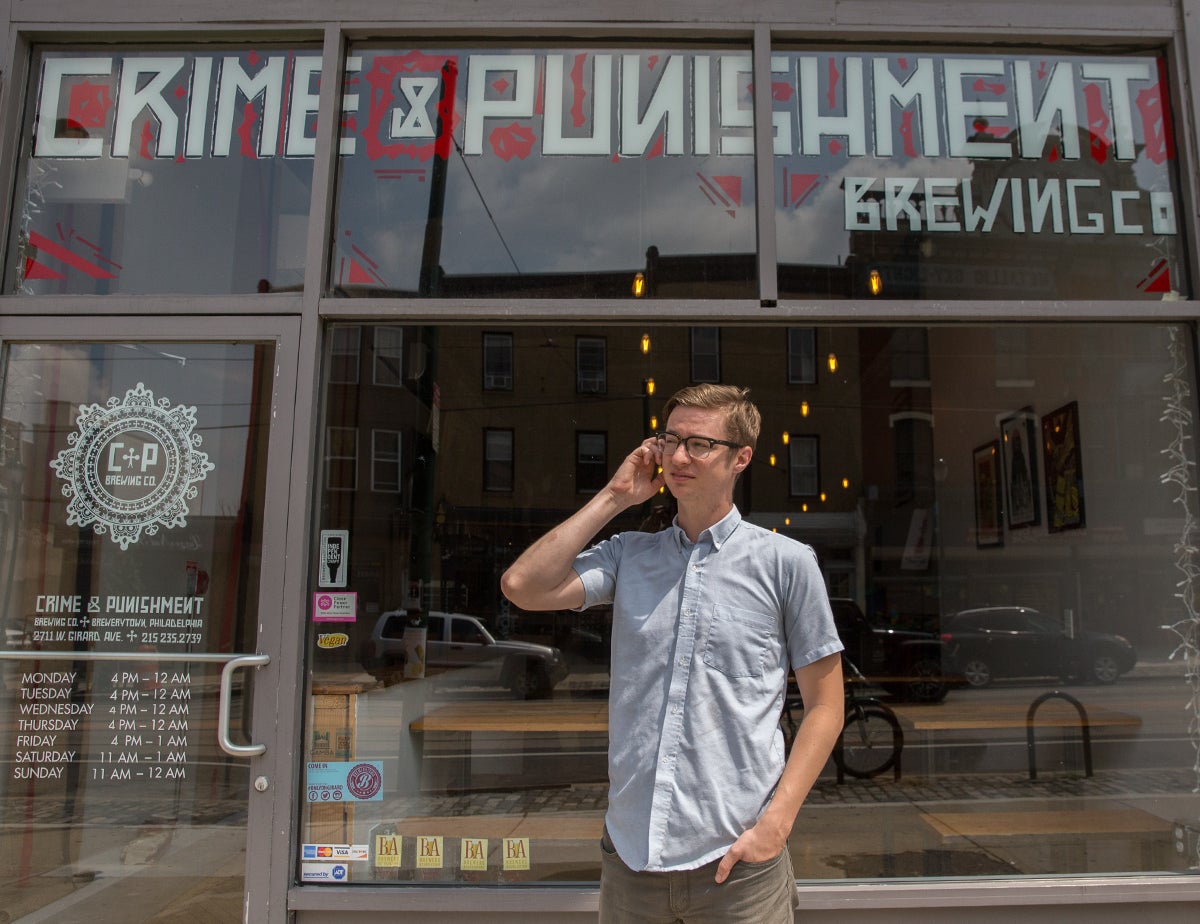
As the neighborhood changes, cities have an obligation to respect the needs of the residents, says Ira Goldstein of Reinvestment Fund.
He cited Pittsburgh as a gentrifying city that’s cleared the way for implementation of an affordable housing trust fund which, if funded, would help low-income residents maintain their properties, pay their property taxes and afford their rent.
“They proactively created long-term affordability for a significant number of housing units in that area which allowed people to hang in and benefit from the changes that occurred,” Goldstein said.
For her part, Mary Griffin is optimistic about Brewerytown’s future. It’s too bad she won’t get to see it.
“I’m going to a strange neighborhood from basically all my friends and people I know who know me that I feel safe around,” she said. “Now I’m moving where nobody knows me, and I don’t know if I’m going to be safe.”
Editor’s note: This story has been corrected to accurately represent Pittsburgh’s affordable housing trust fund.
WHYY is your source for fact-based, in-depth journalism and information. As a nonprofit organization, we rely on financial support from readers like you. Please give today.




